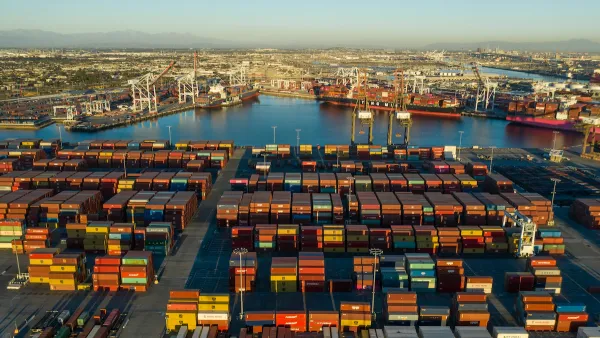Without their own dedicated federal funding, U.S. ports are often left to provide for themselves. More and more of them are turning to public-private partnerships.
"Unlike highways and the highway trust fund, ports do not have a dedicated source of federal funds. Historically, ports have relied on the revenues generated from operations, bonds supported by those revenues and a few government grants to keep their facilities up to date. Some state and local governments appropriate money from their budgets to support port improvements. Generally, however, ports are left to fund themselves."
"Recently, more and more ports have been turning to third-party investors to finance infrastructure modernization projects through public-private partnerships (PPPs). This change is due to both a lack of overall funding available given the demand for facility improvements and a growing number of private investors who see great potential for future returns on their investments in the nation's ports. As managing partner of the private infrastructure investment firm Highstar Capital, Christopher Lee puts it: 'Ports are going to be one of the first lines of the economy to turn when the environment improves. We want to be ahead of the competition.'"
FULL STORY: Port Privatization Trend Growing

Analysis: Cybertruck Fatality Rate Far Exceeds That of Ford Pinto
The Tesla Cybertruck was recalled seven times last year.

National Parks Layoffs Will Cause Communities to Lose Billions
Thousands of essential park workers were laid off this week, just before the busy spring break season.

Retro-silient?: America’s First “Eco-burb,” The Woodlands Turns 50
A master-planned community north of Houston offers lessons on green infrastructure and resilient design, but falls short of its founder’s lofty affordability and walkability goals.

Test News Post 1
This is a summary

Analysis: Cybertruck Fatality Rate Far Exceeds That of Ford Pinto
The Tesla Cybertruck was recalled seven times last year.

Test News Headline 46
Test for the image on the front page.
Urban Design for Planners 1: Software Tools
This six-course series explores essential urban design concepts using open source software and equips planners with the tools they need to participate fully in the urban design process.
Planning for Universal Design
Learn the tools for implementing Universal Design in planning regulations.
EMC Planning Group, Inc.
Planetizen
Planetizen
Mpact (formerly Rail~Volution)
Great Falls Development Authority, Inc.
HUDs Office of Policy Development and Research
NYU Wagner Graduate School of Public Service


























